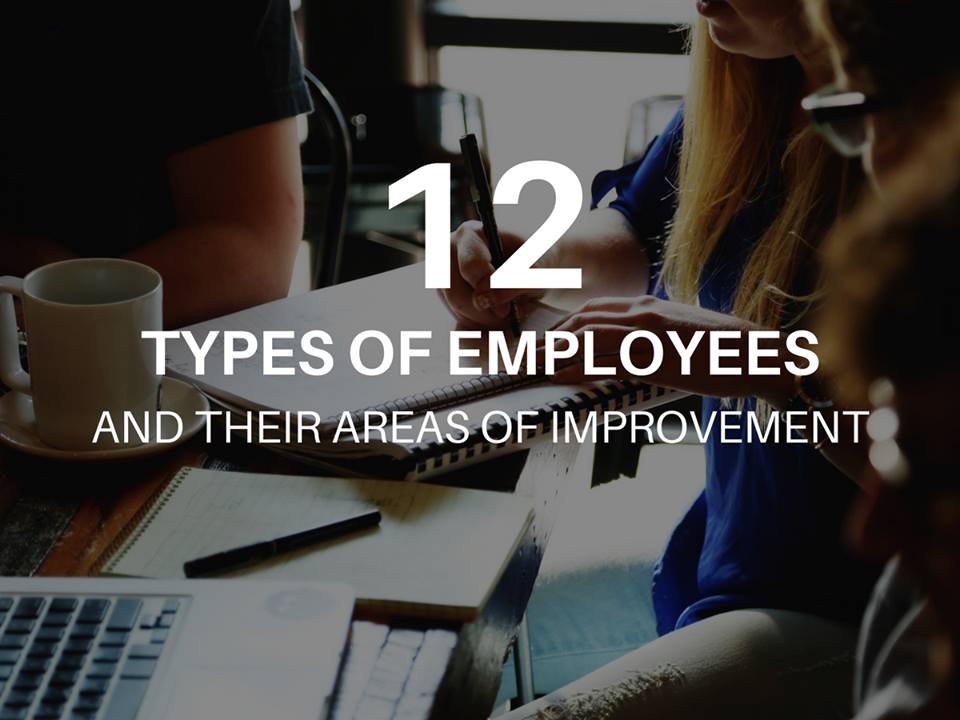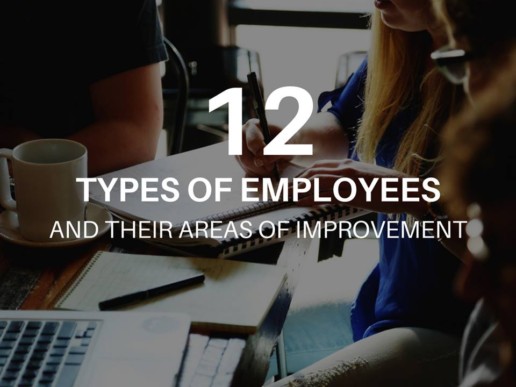Purpose of Trainings and Seminars: Unlocking Professional Growth & Skills Enhancement
The purpose of trainings and seminars is becoming more evident in developing the potential and progress of employees today.
Times have changed, and corporate professionals can progress by discovering new strategies, tools, and systems. They will then become more relevant and valuable in the marketplace.
If you’ve been considering investing in corporate training programs, here are eight purposes of trainings and seminars that can help you achieve personal and professional success.
8 Purpose of Trainings and Seminars
1. Acquire Hard and Soft Skills
Corporate training service providers, like Rainmakers Training & Consultancy, can bring you top-notch corporate training programs to help you develop hard and soft skills.
In today’s day and age, hard is soft, and soft is hard.
For example, basic leadership training is perceived to be a soft skill, as it doesn’t require any technical know-how to use it. But as the world changes, leadership becomes more complicated, and it becomes a hard skill. Any leader must undergo leadership programs to level up their influence.
The purpose of trainings and seminars is to help you become more self-aware of what skills you need to master and upgrade.
2. Discover And Learn New Things
Training programs can guide you in discovering lessons, insights, and wisdom you never learned before.
When you hire the best corporate trainers, you’ll obtain knowledge from their decades of experience in their field of specialization.
Whether knowing how to close high-ticket sales or leading a team of 100 people, you’ll have access to the wisdom they gained from their experiences working in different situations. Thus, it helps shorten the learning curve you need to master a field.
3. Credentials For Your Resume
Professionals can include certifications of past trainings and seminars in their Linkedin profile and resume. This improves the credibility in the marketplace to perform specific tasks their future job roles require.
Job seekers and HR professionals would be leaning towards a professional with several certifications and training attended, as it signifies the kind of mindset this professional has towards work and personal growth.
4. Widen Networks
One of the underrated purposes of trainings and seminars is to widen your network.
Networking helps you find potential mentors and coaches to guide your career. It could also help you get a job role you wouldn’t readily have access to without a referral from someone you met in a seminar or training program.
To level up your career, attend seminars to widen your network and influence. Networking can help you gain insights and wisdom from participants in other organizations and industries. With this wisdom, you can apply principles and strategies that might work for your current job.
It helps you get better results and achieve the next level of growth through networking and mastermind groups done in the setup of training and seminars.
5. Personal Growth and Development
Your income level depends on the status of your personal development. The better you develop yourself, the more opportunities you’ll have.
Personal growth keeps you aware of your capabilities so you can maximize your strengths further to grow your business, career, and personal life. Training and seminars will help you discover your potential but also help you see patterns of growth opportunities you can maximize to earn more revenue and be more significant to others.
Training and seminars open opportunities for personal growth and development. Companies either do it in-house or hire external training provider to elevate the skills of their employees.
6. Improve Work Performance
The knowledge you gain from training and seminars can help improve your work performance.
For example, if you attend any productivity or time management training program, you will learn some fundamental principles for increasing productivity at work. This will double or triple your output in a given hour, helping you achieve your KPIs.
Another example is that when potential managers and supervisors attend and apply the lessons they learn from leadership training programs, it has a significant effect on their work performance.
They are no longer concerned solely with their individual work; they now monitor the outcome of their associates and are accountable for the results.
Through performance coaching programs, they know how to identify performance gaps, monitor them, and provide recommendations to improve their team members' quality of work.
For aspiring business owners, learning from the top CEOs and young Filipino entrepreneurs can help you turn a business idea into reality. Comprehensive business coaching programs provide a roadmap for getting from point A to point B by building the proper foundation for running your business.
7. Boost Self-Confidence
When you see yourself growing in areas where you need help, it can boost your self-confidence.
Confidence helps you get the momentum you need to achieve more outstanding results at work and in life.
And when one is confident, one is more efficient and effective, leading to higher-quality work output.
8. Generate More Revenue
I mentioned the power of networking in gaining new knowledge. But it doesn’t stop there.
Networking and learning from trainings and seminars help you generate more revenue. Through referrals from other participants to your business’ products or services, you can increase your company's sales.
Plus, the added factor is that word-of-mouth marketing has a built-in trust in place given that you’ve known them and have built initial interactions when attending the seminars and trainings.
Trainings and seminars have a direct business impact not only on the corporate training provider but on the participants as well, as they add opportunities to widen their brand reach and get more referrals through networking.
Key Takeaways
These are just a few of the many purposes of training and seminars. If you invest in your employees' learning development, you’ll help them be more productive, fruitful, and significant at work and in their personal lives.
We customize in-house corporate training programs for organizations. Contact us today to get a free quote.
7 Tips to Find Online Jobs in the Philippines
In recent years, the employment landscape has transformed drastically, and the Philippines has embraced the rise of online work with open arms. This blog aims to guide you through securing a legitimate online job in the Philippines, allowing you to capitalize on your skills and talents from home.
Whether you're a freelancer, remote worker, or someone seeking flexible work options, these invaluable tips will empower you to successfully navigate the digital job market. Let's dive in and unlock the door to online opportunities!
1. Identify Your Skills and Interests
A. Assessing your strengths and talents:
The first step towards finding the right online job in the Philippines is to self-assess your skills, strengths, and interests. Consider your professional background, educational qualifications, and specialized skills.
Identify your areas of expertise: writing, graphic design, programming, customer service, or marketing. Understanding your strengths will help you align them with the most suitable online job opportunities.
B. Exploring various online job categories:
Online work offers diverse job categories catering to different skills and interests. Take the time to explore various online job platforms and websites to discover the breadth of options available.
Some common categories include freelance writing, virtual assistance, web development, graphic design, online tutoring, and e-commerce. By exploring these categories, you can gain insights into the roles and responsibilities associated with each, helping you narrow down your choices.
C. Matching skills with suitable online job options:
Once you've identified your strengths and explored different job categories, it's time to match your skills with suitable online job options. Look for positions that align with your expertise and interests. Focus on roles that allow you to showcase your talents and contribute effectively. Remember that not every job may be an ideal fit, so be selective and target opportunities that genuinely resonate with your skill set and aspirations.
2. Research Reliable Job Platforms
A. Popular online job platforms in the Philippines:
With the growing demand for online work, numerous job platforms have emerged in the Philippines. Research and identify reputable outlets with a proven track record of connecting job seekers with legitimate opportunities. Websites like VirtualStaff.ph is the perfect place for finding online jobs in the Philippines.
B. Understanding the platform's reputation and user reviews:
Consider its reputation and user reviews before investing time and effort into a particular job platform. Look for testimonials or feedback from other freelancers or remote workers who have used the platform.
A reliable platform will have positive reviews, transparent payment systems, and a secure environment to safeguard your interests. Beware of media with a history of delayed payments, scams, or unresolved complaints.
C. Signing up and creating an attractive profile:
Once you've selected a trustworthy job platform, it's time to create a compelling profile. Your profile acts as your digital resume, showcasing your skills, experiences, and achievements. Craft a professional and engaging profile that highlights your expertise and demonstrates your commitment to quality work.
Include a well-written bio, relevant portfolio samples, and any certifications or credentials you possess. An attractive profile will increase your chances of attracting potential clients or employers and set you apart from other applicants.
3. Building a Strong Online Presence
A. The significance of a professional online presence:
A robust online presence is crucial for job seekers in the digital age. Employers often search for candidates' online profiles to assess their professionalism and credibility. Create a consistent and professional online presence that reflects your skills and expertise. Ensure your social media profiles project a positive image and align with your career aspirations.
B. Optimizing your social media profiles and LinkedIn:
LinkedIn is a powerful tool for professional networking and job hunting. Optimize your LinkedIn profile with relevant keywords, a professional headshot, and a well-written summary highlighting your skills and experiences. Use social media platforms strategically to showcase your expertise and engage with industry peers, potential clients, or employers.
C. Showcasing your portfolio or previous work samples:
A well-curated portfolio is essential for demonstrating your capabilities to potential clients or employers. Include your best work samples, case studies, or projects that showcase your skills and achievements. Whether you are a graphic designer, writer, or programmer, a visually appealing and easy-to-navigate portfolio will leave a lasting impression on those who visit your profile.
4. Networking and Making Connections
A. Joining online job-related groups and forums:
Networking within online job-related groups and forums can open new opportunities and valuable connections. Engage in discussions, share your expertise, and learn from others in your field. Networking can lead to referrals, collaborations, and insights into industry trends.
B. Reaching out to fellow freelancers or remote workers:
Connect with fellow freelancers or remote workers who share similar interests or work in your niche. Engaging with peers can provide support, encouragement, and valuable advice. They might also refer you to potential clients or projects, expanding your professional network.
C. Leveraging personal and professional networks:
Remember to underestimate the power of your existing personal and professional networks. Let friends, family, and former colleagues know about your online job search. They might know of opportunities or introduce you to relevant contacts, helping you kickstart your online career.
5. Mastering the Interview Process
A. Preparing for virtual job interviews:
Virtual job interviews have become increasingly common in the online job market. To ace your virtual interviews, ensure you have the necessary technology and a stable internet connection. Rehearse your responses to common interview questions and practice maintaining eye contact with the camera to establish a relationship with the interviewer.
B. Showcasing your communication and collaboration skills:
In a virtual interview, effective communication is paramount. Demonstrate your communication skills by speaking clearly and articulately. Practice active listening to show genuine interest in the interviewer's questions and comments.
Showcase your ability to collaborate by sharing examples of successful teamwork in previous remote projects or during your in-office experiences. Emphasize your proficiency in remote collaboration tools like Slack, Trello, or Zoom to highlight your adaptability to the digital workspace further.
C. Handling common interview questions and scenarios:
Be prepared to answer common interview questions assessing your suitability for the role and fit within the company culture. Typical questions may include your strengths and weaknesses, how you handle challenges, and your long-term career goals. Tailor your responses to showcase how your skills align with the job requirements and how you can contribute to the company's success. Be confident but not overbearing, and remember to balance showcasing your abilities and being humble.
During the interview, be prepared to discuss how you handle specific scenarios, such as meeting tight deadlines, dealing with conflicts in a remote team, or handling independent project management. Draw on relevant experiences from your past work to demonstrate your problem-solving skills and ability to adapt to different situations.
Additionally, be prepared to ask thoughtful questions at the end of the interview. Inquiring about the company's culture, team dynamics, and growth opportunities shows your genuine interest and enthusiasm for the position.
Conclusion
In conclusion, finding online jobs in the Philippines offers opportunities for skilled individuals seeking flexible and rewarding careers. By identifying your strengths, exploring legitimate job platforms, and building a robust online presence, you can attract potential clients or employers and avoid scams.
Networking and mastering the interview process will further boost your chances of landing your dream online job. Embrace the digital work lifestyle, balance flexibility with discipline, and continuously upskill to stay ahead in the dynamic online job market. You can unlock a prosperous and fulfilling online career journey with determination and these tips. Happy job hunting!
When you think you have too many passions
In my line of work and my ministry with young professionals, I know there is a huge conversation about pursuing a job that you love, or what people say "following your passion" in replacement of what they currently do for a living.
So basically if you are an accountant and you want to be a writer because it is your passion per se, you'll quit your job, and risk-taking find a writing job and become a writer for life.
The question here is not whether you want to pursue your passion. After all, who doesn't want to work in a job that he loves? The real issue is whether your passion is worth pursuing.
Not all passions are worth pursuing.
By strictly looking at the real meaning of passion, passion refers to "suffering."
Here is the truth, not until you face and overcome real problems that will challenge your thoughts, your emotions and your professionalism (and ultimately, find yourself almost in suffering), you can never call an activity your passion.
Does it mean passion is no longer part of the equation?
NO. It means you've got to sort through all your seemingly passion activities if they are worth pursuing.
1. Go where your skills are present.
Skills are underrated. People ignore skillset and go where their emotions are high.
In a practical sense, you can't pursue a profession just because it's your hype. The marketplace is looking for and requiring skills from people to solve a particular need of the customers.
Do I have skills in this passionate activity? And when I say skills, it refers to both hard (technical) and soft skills. Are you good at graphic design and can honestly say to yourself you can get a job with it?
The good thing in today's time is that you don't have to quit your job and jump into another industry too soon. You may get a side-hustle (part-time job or 'raket"). So while having a full-time job, you can do freelance work on a side (after your full-time working hours).
In this kind of setup, you're not risking yourself too much compared to resigning from your full-time work and unfortunately not able to find a job that suits your passion.
The author of "Your Career Roadmap," Nelson Dy coined the term, "passionmastery" which refers to a job where there is an intersection of passion and mastery of skills. This means that a good profession is not just having a job that you love, it is also accompanied by the right kind of skills that will lead to professional mastery.
2. Go where you put a lot of effort.
In my younger years, I want to be a soccer player. I watched shows and live sports on Television, but if in case, a person would ask me, "What do you do to become a soccer player"?, I knew I wouldn't have a definite answer.
Reality check, if you're not willing to put a lot of effort into your passionate activity, it may not be worth pursuing.
By efforts, it means a lot of things:
- Are you willing to burn the midnight oil to study, learn and practice the skills that you need to become a (insert your passion here)?
- Are you committed to finding mentors with 5 to 20 years of industry experience who can guide you, give you insights, and most importantly, provide with you upfront challenges you'll be facing in that passionate profession?
- Are you committed to investing your money in courses and formal education to have the right foundational skills and knowledge in that passionate industry?
These are just a few questions that can hopefully help you assess your commitment to that passionate activity.
Here's a good statement from Mark Cuban of Dallas Mavericks.
"If you put in enough time, and you get really good, I will give you a little secret: Nobody quits anything they are good at because it is fun to be good. It is fun to be one of the best. But in order to be one of the best, you have to put in effort. So don't follow your passions, follow your effort."
3. Go where you receive great rewards.
When I say rewards, I don't just refer to financial rewards. You can earn the highest amount of salary in your industry and yet not fulfilled in your job, even if it's the job that you love.
You love the rewards of the job than the job itself. You may love the applause, the stage, the money and the achievements but not the job itself.
There are intangible rewards of a job like the fulfillment you get when you deliver results to a client or a customer. When you see a business or a person succeeds in his or her endeavor, and you feel it's one of the greatest rewards - that is a good determining factor to a right passion activity.
Hopefully, these factors can help you trim down all of the passions that you have in mind to just one.
MORE THAN YOUR PASSION: YOUR PURPOSE
Does this article say your passion is not important?
No.
Passion is important, but there is a more important word than it. That is purpose.
When you have understood your identity, it gives a whole new level of meaning and purpose. And regardless of whether you hate or love your job or whether you succeed or fail, as long as you are standing firm in your purpose, you'll never go wrong.
So to say, "Make your passion be your profession." Think again, what kind of passion am I pursuing?
What Do You Do With Your Unlovable Job?
When I hear a person says, "I don't like my job!", I try to understand where he or she is coming from. Because the truth is…there are unlovable jobs. These are jobs people don't want to stay in the next 30 years of their lives.
If you are the person who drags himself to the office every single day, the question you should ask yourself is this:
What am I doing about this situation?
Because the truth is, no matter how miserable you think about your job, if you don't take actions to be able to change your situation, you will always remain miserable.
Let me give you another question to ponder as well.
What is it really the thing that makes me hate this job?
There are three things that I've seen people get into this zone of hating jobs. Of course, there are other more reasons, but these things below I hope can help you assess your job and yourself.
By identifying the reason behind your job hate, you'll better off than anyone else who just complain about their situation.
Here they are.
Want the industry but don't love the job.
You may have landed on the job that you don't like to pursue in the first place. Perhaps, you have several choices when you're looking for a new job, and ended up in the company where you're in right now. No pending interviews (that was the only interview you've got) and you badly needed the job at that time.
You ended up in your job right now.
Be grateful.
This is not just a motivational advice, but a practical thing to do.
Be grateful. There are other people who don't have jobs, but you have one. Instead of saying, "I don't like my job", say instead, "I love the fact that I have a job" (c: Francis Kong).
Because when you're grateful, it opens up opportunities you'd have never seen.
Don't have a victim mindset, as if you're the only miserable person in the world. Be grateful.
Next, consider your job as a transitional job. Meaning your job may not necessarily the job that you want. But take all the steps to develop your attitude towards work. Attend seminars and trainings outside your company if there are no trainings inside your company (or just take more trainings if you want to learn more).
Learn, and grow. Be more valuable in the marketplace. And when the time comes that there's an opportunity to go to the next job, you now have the vitality and character to go all in. But as you patiently wait and learn, do your very best work every day.
Love the job, but I'm not just passionate.
There is this one idea that everyone wants to share, like or talk about. It is the idea of passion.
"Look for a job that you're passionate about", they say. "Find your passion and make it your profession".
Really?
How many passions do you have in your entire life? 3? 5? How many other passion other people have that later in life shift to another passion?
Truth is:
Your passion changes. Your passion eight years ago may be different from your passion today. Your passion today might be different twenty years from now.
Not only that passion changes, but people also don't define passion the way it should be defined.
When you say passion, it's literal meaning is "suffering".
So when you say things are not doing well for me, things are too difficult in my line of work, and I want to look for a job that gives me passion - the truth is, that's not a passion at all.
Passion is not coming from external things - not coming from your jobs either. It is internal. It is perseverance, it is going through hard times, being patient and not quitting.
Define passion not by your own terms, but by what it really means.
Hate the job, because I don't want to work
This is difficult, because no matter what job and company you are in, you'll never do your best.
Truth to tell, when people say they hate their jobs because they don't want to work, they have the wrong attitude and perspective about work. There are some people who even think that work is a curse. Is work a curse?
No.
In fact, work is a blessing. And work may not necessarily mean your job. Work is the meaningful contribution that you do. It's the value of your job.
In other words, you may have a job but it doesn't mean you're really working. It's like having a gadget but are not functioning well.
Work is the contribution. It is the function. That is why there is a working mom. She may not have a job, but she is working as a mother.
If you're in this situation of hating your job because you don't want to work, change your perspective. Work is a blessing. Give your best. Develop the attitude. Avoid neglects. Because no matter what job or industry you're in, if your attitude flops, you will always hate your job.
Greener grass is made, not found.
Sean Si nailed this statement in his latest post about shifting jobs.
This is true, and let me add. The grass is greener where you water it.
Happiness is not found outside. The joy of working should be internal. So the next time you think about your unlovable job, don't just play like a victim. Do something about it, even if it takes you to burn the midnight oil to take some evening classes/course, read books, acquire new skills in order to transition to another job that you really like.
And while doing that, don't forget. It's not just the RIGHT job that will make you succeed and sustain it. It's your character that will make you remain at the top.
Big Secrets of the Most Successful Online Workers Uncovered
The interest in online employment among Filipinos is increasing dramatically. Obviously, with good reasons. Who wouldn’t want more independence and flexibility in their daily schedule? Not to mention numerous possibilities for earning far more than you need! And all that from the comfort of your home. It’s finally not important who you know, but what you know and can do.
Sounds like a dream come true, right?
We’re not talking solely about earning some extra cash on the Internet. It’s rather about making your living online and building a stable virtual career in a massively growing industry. You wonder which one it is? A bit more patience, please. You’re about to find out the greatest secret of online workers who are well ahead of the game.
Take a peek at these genius insights into becoming a prosperous and satisfied online employee.
Love What You Do
You can make money online in various ways. For instance, you can work as a virtual assistant, copywriter, web developer, CSR, administrative support, marketer, graphic designer and the like. The opportunities are numerous, so everyone can find what suits their needs and interests best.
That is important because you can’t remain committed to your work if you’re disengaged. But how could you get engaged with the job you don’t like or get bored with? Don’t let the money be your only motivator. You won’t be able to achieve the business goals and fulfil your company needs.
Instead, be aware of your strengths and weaknesses. Based on that, find a lucrative niche you’re interested in and hone the necessary skills to perfection. That’s the only right direction.
Followed the link above? Then, you have the idea which one that is for sure. If you think it’s eCommerce, you’re right! The rise of this industry is undeniable. Cost saving and convenience for buyers are what primarily drives its massive growth. That’s the well-kept secret of leading online workers.
Keep Up-to-Date with the Latest Industry Changes
Once you’ve identified the most impressively growing industry and chosen your field of interest within it, it’s vital to remain updated. Why? Because all industries are evolving rapidly nowadays. The tools you have to use when working online are changing and developing in the blink of an eye.
In one of the Forrester’s reports about eCommerce forecast for 2017 to 2022, it is stated that:
“Cross-border shopping will make up 20% of eCommerce in 2022, with sales of $627 billion. Asia Pacific, driven by China, will become the largest eCommerce cross-border region for both imports and exports.”
You see? Not only eCommerce is the future, but it’s already our present!
Thus, strive to stay on the learning path constantly if you want to be competitive. It’s impossible to become affluent if you’re not highly skilled for the job, right?
So, be proactive! Always gain new knowledge and certifications to stay ahead of the curve. Your employer will appreciate that.
Develop Your Technical Skills
Haven’t we mentioned that constant learning is the key to success? You don’t have to be a Jack-of-all-trades who speaks perfect English, knows a lot about SEO, graphic design, marketing, or programming. Just show initiative to learn and grow. Every legitimate employer will reward your effort.
Basic technical skills of an average online worker include:
- using the Internet,
- using a word processing program (e.g. MS Word or Google Docs) to create and edit documents,
- using spreadsheets (e.g. MS Excel or Google Spreadsheets) to keep various records,
- sending emails,
- downloading and uploading documents, and the like.
Mind you - your aim is to be exceptional, not average! So, invest in your knowledge today to become competitive! Choose an effective self-paced online training.
Master Your Communication Skills
When it comes to communication, keep it clear and straightforward. Be a careful and active listener who asks specific questions. That’s how you’ll get targeted information you need to complete your tasks.
For instance, imagine you’ve encountered a problem you’re supposed to discuss with your teammates to find a solution. Don’t just say ‘Hey! Here’s the problem! What should I do?’ Instead, offer a possible solution in advance and ask for their opinions and suggestions.
Also, provide detailed but concise instructions. Use active verbs and a step-by-step approach when assigning a task to a co-worker to avoid misunderstandings. For example, don’t phrase the instructions like this:
“Blog article on popular shoes with nice photos and relevant links needed by Friday.”
Instead, give the following less generic guidelines, such as:
“Hi (team member’s name),
Please, write a blog article about the most popular high-heeled shoes this season for www.storename.com/blog (no longer than 900 words).
Deadline: Friday, August 25, 2017, 10 a.m.
The aim of this task is to .... (explain what you would like them to achieve with this work)
1) Please include a link to their most popular product page in the first part.
2) Include no more than X outbound links.
3) Also, include at least 3 high-quality product photos (dimensions AxB).You can ask [team member] to help you find them.
Thank you,
(Your name)”
Isn’t it more precise?
So, keep your messages and emails brief to avoid confusion. Getting right to the point will show you respect other people’s precious time.
Strengthen Your Soft Skills
Besides the professional skills required for the job, you shouldn’t neglect your soft skills as well. It means you’re supposed to develop your emotional intelligence. That’s how you’ll learn to:
- handle work pressure,
- cooperate with others,
- be an active listener,
- communicate properly,
- connect with people,
- empathise with them,
- be open to feedback, and much more.
It’s also useful to learn how to deal with difficult colleagues.
Maximise Your Productivity
It’s impossible to reach maximum productivity when you’re not focused on what you’re doing. Stronger focus increases productivity. As simple as that. Thus, plan your steps, manage your time, and remove any distractions while you’re working. That’s the only way to boost your productivity.
Keep Track of Your Performance
Define reasonable specific professional goals and deliver on them. Keep track of your performance on a daily or weekly basis. It will help you stay on the right path and head towards achieving your goals.
If you’re not satisfied with your performance, find the ways to improve it. Also, don’t sit and wait for the feedback, ask for it.
Demonstrate an Exceptional Work Ethic
No matter whether you’re working on a major or minor task, always do your best. Handle all your tasks with particular attention to details and the same enthusiasm and responsibility. Anyway, being devoted and hard-working are typical Filipino traits. So, you won’t find achieving it difficult, right?
Someone unreliable who often misses deadlines can’t expect a raise or promotion. Similarly, your excellent performance will be recognised and rewarded.
Thus, hone new skills, be within reach, stay loyal and self-motivated. Jump in and offer help when you see a colleague struggling with a task. Even if you’re not asked to. Get the job done on time and inspire others around you to grow. That’s an online employee who can count on long-term engagement, high rates and success.
Always Stay Professional
Wins and losses are part of everyday business. Filipinos are sensitive and take everything too personally. That’s why you should learn how to take constructive negative feedback from your boss or co-workers seriously but not too personally. Use it to figure out how you can improve. It’s vital to learn how to manage your emotions and stay professional.
Create a Good Working Environment
Remove any distractions from your working environment and get some peace and quiet. You certainly wouldn’t take your children, family or pets to the office, right? Your office is now at home, so make sure the kids are playing in another room or outside while you’re working. Talk to your friends and family so that they know when they mustn’t interrupt you unless the house is on fire.
Also, turn off the TV and your mobile phone. Don’t get lost and start surfing the Internet for pleasure, reading newspapers or playing games during your working hours. A serious online employee would never do that!
Comfortable chair and adequate lighting go without saying.
Take Special Care of Your Equipment
The equipment you use in your day-to-day work MUST meet at least some minimum requirements. Otherwise, you won’t be able to perform your duties smoothly. Make sure your computer works properly, and secure a stable Internet connection. Also, come up with a backup plan if something goes wrong. That’s how you’ll show your employer you’re serious about the work.
Be Wise with Your Earnings
When you start earning more than you used to, you will be tempted to spend more too. You’ll want to make some big or unnecessary purchases, buy expensive presents for your friends and family, or organise big parties as most Filipinos would.
You think that’s how you’ll show the people how much you love and appreciate them, right? Besides, shopping and parties relieve stress, and you work a lot now and are under intense pressure. So, why wouldn’t you relax a bit and enjoy your life? Be careful not to fall into that trap!
Plan your budget before you get old and realise all your big money’s gone with the wind. Open a savings account, get insured, and think about your retirement now. Also, invest in your education because it will bring you an even higher salary.
Adopt the Right Attitude
It’s all about the right approach to work. Do you believe your home-based online employment is less important and serious than a regular office job? If you do, that’s an obstacle to success.
Don’t get working in your tracksuit or pyjamas from your room deceive you! Your virtual job requires as much dedication and effort as all the other jobs. Thus, treating it as a genuine employment is the only right attitude.
That’s why you should learn how to be an effective and valuable remote employee. All these guidelines rely on nothing more than common business sense. Stick to them and your online career is bound to thrive. Keep in mind that building a successful online career takes discipline, dedication and persistence.
9 POWERFUL TIPS TO DEAL WITH DISAPPOINTMENT AT WORK

Disappointment in your office comes from many sources:
• Your best-friend colleague just got laid-off from the company.
• You got a low grade in your performance appraisal (but you know you did your job very well).
• Your boss promised you a promotion but months or years passed, it hasn’t come.
• Your sales proposal or presentation was turn down by your potential client or customer.
• Your filed leaves were rejected by your boss.
• You moved into a new company and found out that it’s worse than your previous job.
So on and so forth. If any of the above is something you experienced or have come to know from other people,, here are nine simple tips to deal with your disappointment at work.
1. DON'T BE TOO HARD ON YOURSELF.
Everyone experiences disappointments at work. There are other people who’ve been through the same situation but was able to overcome it because they’ve managed their emotions well.
Don’t be too hard on yourself. Thinking “you’re just not good enough” shouldn’t be your statement. Don’t discourage yourself – you have other things you can do but others can’t. Believe in yourself.
Don’t drown yourself in too much emotions. Opportunities will come. It just takes time. Your next big shot awaits you.
2. MANAGE YOUR EMOTIONS. SMILE.
Be honest. Cry if you can’t control it. Talk to a friend, a mentor, or someone you trust the most and show that you’re not okay. It’s okay not be okay at times. But don’t let that disappointment demotivate you for the entire year.
Emotions can eat you up. It can get to a point where you start you at your officemate (even if he’s not the cause of your disappointment), or hide in a corner for the whole afternoon or day (AWOL for several times). This maybe an exaggeration, but it can happen at times that you can’t control your emotions, especially if family situation is a factor in your disappointment.
Smile.
Manager your emotions. Don’t let that disappointment seriously harm your professional reputation and work performance.
3. DON'T MAKE RUSHED DECISIONS, STAY CALM.
Before deciding to quit your job. Consider your full situation – your family and the impact of resigning from your job on your current state.
Quitting isn’t the first option after you get disappointed. Don’t make decisions when your emotions is on the highest level. Quick and unwise decisions can often do more harm than good.
Stay calm. Relax. Talk to your closest friend and ask for advice.
4. REVISIT YOUR EXPECTATIONS.
The higher the expectations, the higher the chance you’ll get disappointed. Whether it is an expectation on yourself, from a boss , or even from outside of the company, you have to check if what caused your disappointment is something you really have to expect.
Ask the question, is it something you should expect in the first place? Maybe there’s no promise from your boss for promotion or salary increase. Words from your boss are easier said but done. Talk to your boss if this is something they can work out in the next quarter or six months.
Is your expectation unrealistic enough (more likely to fail)? Is your expectation flexible? Ponder these questions so you won’t be setting high expectations on anything and on anybody.
5. DON'T BE RESISTANT TO CHANGE.
Transferring to a new role or to a new department or being given a task by your boss that is out of your comfort zone are changes that had to be made for company improvement. You may not see it at first hand because it’s too uncomfortable to adapt to the change, but over time you’ll see that these things happen for the betterment of your team or your department.
Set your mindset right. Adapt to the new corporate setting or environment. Maybe, you are the only person who can’t accept the change, thus, affecting your work performance and productivity.
Adapt to the new culture and new environment and work out with your relationships with your officemates and boss. If it’s a new company you just joined in, learn to adapt. Your current company isn’t the same as your previous one.
6. IDENTIFY THE DYSFUNCTIONAL AND IMPROVE ON IT.
Assessment shouldn’t only be done by your boss, or by your manager/supervisor/HR during quarterly or annual reviews. You should also evaluate yourself.
After you manage your emotions after a bad situation, learn to identify what’s dysfunctional on your side.
Maybe your proposal has been rejected because it lacks certain important details that you have to emphasize during the presentation.
Maybe your supporting documents or ideas aren’t strong enough to meet the company’s standards to get the promotion or salary increase.
Maybe your lack or inability is actually your weakness that you should have delegated in the first place, so you could have succeeded in your project.
Another example, if you file leaves weeks before the scheduled event (if it’s not an emergency), your boss should have accepted your request for leave.
Identify the dysfunction and work on it.
7. ASK HELP FROM TRUSTED PEOPLE.
What are true friends for if they can’t comfort you in times of disappointment?
Don’t just ask for advice from people whom you don’t trust, especially if it is your officemate that you’re talking to. In rare cases, it could be used as a backfire against you in your office.
If you have friends within your network, a mentor or your previous boss from other companies, they’re much better to ask with regards to corporate advice and tips.
8. CONSIDER POSSIBILITIES AND OPPORTUNITIES.
Some disappointments can often lead to appointment, as they always say.
This is true in some cases.
Always consider possibilities that you can act on to turn that disappointment into an opportunity.
For example, if you didn’t get the raise/promotion but one of your officemates did, maybe that’s an opportunity for your boss that you’re also a good candidate for promotion or salary increase (waiting for weeks after your colleague’s promotion is the best time to propose it to your boss). While you can’t open about what happened to your officemate, you can ask your direct boss on feedback about your job and how you could get higher up in your position – what are the needed skills, performance, quota, etc..
9. WAIT AND QUIT ONLY IF YOU DID ALL POSSIBILITIES THAT YOU CAN THINK.
It’s normal to say, “I quit” after you’ve experienced disappointment.
However, always consider things before you actually do so.
Have you saved enough money to cover your monthly expenses? When you leave the job, you should have something to spend in between jobs.
Have you talked to your boss about your compensation or any work matters? Being true to your boss will give the signal that you’re actually looking for better opportunities in your office. Otherwise, you’ll always find yourself complaining about your job or your boss. Note: your boss can also relate to your needs, he’s human too.
Have you built authentic relationships with your officemates? You can’t say you’re not fit to the culture if you’re not doing anything with your work relationships.
Maybe you’ve explored all the possibilities that you can think of, one thing you need do is to wait. If you’re working in a startup company, growth is unexpected. If you wait a little longer, you’ll get the promotion or salary increase that you’ll have missed if you just quit your job too early.
Maybe your company has a good career advancement program. Benefits are good and the culture fits you, but you’re still getting disappointed. Perhaps there’s a gap between your passion and work engagement. Your job isn’t what aligned to what you really want to do in life.
Maybe you’ve found a better opportunity elsewhere (i.e. better career growth or better culture) and have decided it wisely, your option maybe is to move to another company already.
Just because you get disappointed doesn’t mean you have to leave your job. There are other possibilities that you haven’t done yet but can help you solve the problem. Your last option is to quit the job.
Of course, there are serious reasons to quit the job too early on, but if after you just disappointed, you immediately quit, you are likely to lose than win.
12 TYPES OF EMPLOYEES AND THEIR AREAS OF IMPROVEMENT

No matter where you work, how you work and what your job is, you’ll encounter these types of colleagues in your workplace--may it be you, your officemate sitting next to you or your boss himself. Check each one of them to know their areas of improvements.
1. INNOVATOR
These individuals take initiative in coming up with new ideas, strategies and thoughts – they often termed as the “strategist”. They can propel the team to move forward with their excellence in creative thinking. They see the bigger picture or view than anybody else in the team and does help a lot in minimizing risks caused by wrong or poor decisions.
Area of improvement:
Innovators should provide a buffer for execution of their ideas. Since they have a tendency to jump into another idea without fully executing the first one, they could paralyze the team with not yet fully acted insights. It is best if they can work with executors in their team to implement what they have in mind. Narrow ideas into small bits of details so it could be well executed.
2. INSPIRATIONAL
These are committed individuals who can motivate themselves despite the toxic environment. They always give their heart and soul to their work, leaving some positive impact to their colleagues. They always smile, are full of energy, and always believe that they can always get things done.
Area of improvement:
Funnel your inspiration to execution. You and your team shouldn’t just get inspired but be able to deliver high-quality tasks or reports on time. While being inspirational is good, performance is still always backed up with data.
3. PROBLEM SOLVER
While everyone in the office is panicking, problem solvers are taking seats and thinking of solutions to the current situation. They develop practical steps that can attend to immediate needs, thus elevating the performance of the team to the next level.
Area of improvement:
Ask help from your direct boss. You can have the most intelligent solution to the problem, but it’s always better to seek help from authorities. They have more experience and can aid you in executing those solutions properly.
4. ALL-IN-ONE
You will rarely find this “all-in-one” employee, but he or she is probably one of the best assets of the company. They have almost all skills needed to succeed, are good in innovation, communicating ideas, and delivering above par individual and team work performance.
Area of improvement:
Don’t be a jack-of-all trades. While you can possess all skills needed in your job, your team or your department, it is best to focus only on two or three things you’re very good at and master those skills as you grow your career.
5. CHARISMATIC
You’ll see that this person always takes initiative in leading his/her colleagues. They are good types of employees to be promoted because they can inspire their people instead of just pressuring them. They communicate their plans and thoughts on a deeper emotional level that their team members can easily understand and execute.
Area of improvement:
Don’t stop learning about leadership. There’s still more to adapt and practice in this area whether you are a subordinate or you’re the boss yourself. Keep reading books and attending seminars on leadership. Improve your hard skills as well so you can better coach your subordinates.
6. NEGATRON
Despite having an enticing culture in the office and full salary benefits, negatron employees are always on the lookout for things to complain about. They are always unhappy and whining almost about everything – from the new look in the office to the new outfit of her boss. In most cases, negatrons bad-mouth (gossip and lies) the company to her colleagues inside her department and to her friends outside of work.
Area of improvement:
Find something good in your boss and in your office. There should always be one and focus on that. May it be a hobby or passion of both you and your boss/colleague can bond with or as simple as the weekly Zumba in your office that gives you some fun. Don’t do to others what you don’t want others to do to you. Be kind to everyone.
7. TRADITIONAL
We always find this “traditional” colleague in the office. She does a “good job”, does what is told but isn’t willing to innovate or even suggest new ideas and insights to the team. She normally has been an average contributor to the company, leaving just an average of 7/10 in her annual performance review. People in the office loves her for she doesn’t complain nor bad-mouth. She respects workinghours, her colleagues and is always delivering output on time.
Area of improvement:
Traditional employees can do more what they are just asked by their bosses. They can always do better job than yesterday. Have a burning desire to excel and be the outstanding employee of the company. They might be promoted in the next few years because of their “average” performance, but isn’t it better if that can achieve that in lesser time. Best tip is to set career goals as early as the first quarter of the year.
8. PURPOSELESS JOB HOPPER
This type of job hoppers aren’t looking for new jobs for better career opportunities, but simply just seeking for a “perfect” company. While this is good to be true, it doesn’t happen all the time. Purposeless job hoppers don’t have any valid reason in quitting their job and usually stays less than a year, or worst, less than six months. They have a long list of job experiences in their resumes with less than 4 months stay in each of the four companies.
Area of improvement:
Stay in the company a little longer (working for two months and saying you’re not fit to the culture isn’t wise). Start building authentic relationships with colleagues and with your boss. Over time, this can help you find and learn untapped career opportunities inside the company instead of just clocking in and out and doing meaningless work.
9. CHANGE RESISTERS
These are people who oppose change, whether it is a normal exchange of tasks between one person and the other or as simple as introducing him to a new boss who is more capable of handling the team. Their “comfort-zone” mindset paralyzes them, which affects their productivity and work performance. They are typically afraid of the future, thus, not helping them concentrate on their present work.
Area of improvement:
Ask immediate training from your boss or organizational development/training team of your company if you need to learn new trends and strategies brought by the new changes in your company. Improve your flow of communication with your boss and with your other bosses to get hints on the future updates in your department. This could help you prepare a little early so you wouldn’t panicked when changes had been made. Battle your fear with faith that there is better growth in store for you.
10. BIG TIME PROCRASTINATORS
Their motto at work is “tomorrow is my day”. They get distracted with social media and senseless conversations with colleagues and when it’s time to submit a report at the end of the day, they always say, “I’ll do it tomorrow”. They spread “unproductivity” influence in the whole group and entice others to do as they are doing. They care less about work performance usually do things at the last minute.
Area of improvement:
Be true to yourself. Admit that you procrastinate most of the time. Get projects or tasks from your boss where you’ll be held accountable for the team. This will help you take things seriously.
11. UNFOLLOWER
An “unfollower employee” doesn’t want to submit himself to the authority of his boss, not because he finds faults in him but rather he has a rebellious attitude. He always test the patience of his boss by giving hard-headed actions. In a rare case, he creates a secret group of rebels in the company, which decreases the overall morale of the team.
Area of improvement:
Be humble and learn to submit to your boss. There’s a reason why he is promoted, not you. Instead of just rebelling, be professional and do your work at its best, so in due time, you’ll reap the harvest of being the next boss.
12. DRAMA KING/QUEEN
This type of employees always mix professional work with their personal life. They always pity themselves and get sympathy from others (while this may be good in certain times, if it’s too much, it’s not healthy anymore). They always look for attention and usually file vacation and sick leaves.
Area of improvement:
Be genuine. Don’t bring personal life at work (there are perfect time for that, i.e. after office hours, etc.). Focus on your task or project so you can achieve your career goals, get your boss’ favor, and take leaves at the right time.
6 QUESTIONS TO ASK YOURSELF BEFORE QUITTING YOUR JOB

Quitting is winning if you have identified the main purpose and it’s in the right timing to do so. Here are six questions to ask yourself if you need to file a resignation letter and look for another job.
1. WHAT IS MY REASON FOR QUITTING?
If you identify the “why”, it’s easy to determine the “what” and the “how”.
Before diving into a final decision, be honest with yourself and ask, what is your main reason of quitting?
Is it the toxic environment and people around you – the politics and negative people that adds too much stress? Is it the work itself that burdens you a lot (too many workload beyond your capabilities)? Are you stressed or disappointed because your expectations for this company haven’t been met? You’re not getting the right compensation and benefits not being paid – below industry compensation standards?
Your “bad boss” whose only desire is to make you worse? Or you’re trying to just look for better career opportunities (i.e. from audit to private work or private work to consulting)? You’re not getting excited about your job and you think you’ll excel in the field that you really want (career change)?
Think about this seriously. Don’t seek advice from your friends yet. Reflect.
2. IS THIS AN ISSUE I CAN STILL RESOLVE?
See if your reason of quitting is something you can resolve.
Talk to your boss or manager if you have any issues with communication, workload or even lack of training. Their job is to lead and manage you properly. Unless you speak up, nothing happens. You wouldn’t know but the boss of your boss or the other manager could come up with a solution or alternative to resolve your issue. If nothing happens still, answer the next question in this piece.
If compensation and benefits issue is a concern that you were not aware of at the time you signed the contract, get some assistance from the HR team. If it doesn’t work, answer the next question below and take compensation as your top consideration the next time you get a job.
If it’s about the office environment, see if you’re just the only person who has this problem – if it can be resolved by managing your emotions and changing your attitude towards the issue. If all else fails, answer the next question.
If it’s only an emotion-based matter like stress and disappointments, check out my other album posts on how to deal with them.
Maybe it’s not external but simply asking yourself what things will be left behind when you leave.
Why did I get this job in the first place? Is it because of the career opportunity the company gives me? The experience and joy this work brings that I just felt one stress and decided to give up? Going back to the reason you picked the job might give you a reason to stay.
3. AM I FINANCIALLY PREPARED?
Finances should be your top consideration when you leave your job, especially if you already have a family. Make sure to save at least 3 to 6 months (best is six months) to cover your expenses. This will give you cushion as you apply for your next job.
You can look for another job while you’re in your current work (just do it creatively and secretly unless you want to experience its negative effect on your current state). Tell it only to your most-trusted colleague.
If you’re quitting because you want to venture out into freelancing or business, make sure you save up more than just six months of emergency fund. Take calculated risks by estimating the costs to setup your new business. Though you can’t control what’s going to happen, having a buffer on this gives you a ground confidence not to lose all the hard-earned money at once. Remember that business takes time to get some initial profit and ROI.
4. DO PEOPLE WHO WILL BE AFFECTED BY MY DECISION KNOW ABOUT MY NEXT STEP?
At the end of the day, your family or people whom will be affected by your decision should definitely know your next step not only because you need some support, but so they could prepare enough for the risk that you’ll take.
Your family or parents should know this first. While you may encounter disagreements with them, it’s best that they know what’s going on. After all, who would be the one you could ask help from if you need so?
5. IS THIS THE RIGHT TIME TO TAKE RISKS?
If you’ve talked to your family about your step, the next person to ask is yourself. Have you thought about the consequences of leaving employment and going into business right away? Do you have a network that can help with your decision? Maybe you need more time before going into business. Learn more about starting a business first. Feed yourself with knowledge. Prepare yourself emotionally, physically and mentally.
If you don’t have a family to support yet, you can still take the risk to enter into business. After all, you can still go back to employment after. You wouldn’t know that you can succeed if you don’t try.
Pray to God to give you the wisdom to decide what to do.
6. WHAT IS MY GOAL AND MY PLAN?
You may simply not want your job anymore and you want to pursue the thing that you really want. Jumping into another industry where you don’t have any educational background is like jumping into a cliff. You don’t where you will land but you imagine that it’s something that can excite and give you fulfillment above other career opportunities.
Practically, you can identify your current working skills that you can include in your resume to get the job in your “dream” industry. The larger the gap of skills that you need between your current industry and your “preferred career,” the more time you need to spend with in acquiring skills to suit yourself for that job.
If your reason for quitting is something you have actually planned, like becoming a full-time freelancer so you can take care of your kids well, then do it.
As long as you have decided it wisely and planned on what to do next, you can live with whatever happens. Planning is the key to prepare yourself for the worst. This way, you reduce the negative consequences your actions may result to.
9 WORK HABITS OF HIGHLY SUCCESSFUL EMPLOYEES

Success is subjective. It can refer to many things but there are common denominators that make employees highly successful in their careers.
1. LOVE THE WORK YOU ARE CALLED TO DO.
You won’t progress in your career if you do not love your work. I’ve seen people who’ve tried to work in an industry based on its monetary value, but later on in life, failed to climb the corporate ladder.
The first step to winning in the marketplace is to find your own niche. It’d take you a lot of risks to shift to that career, but that’s far better than having regrets after a decade or so..
Track significant events in your entire life. Be aware of your strengths, talents and skills and see what industry you’d perform best at.
2. CONSTANTLY LEARN NEW THINGS.
Successful employees have a growth mindset. They strive to work to learn new things that’ll help them advance their careers.
Attending in-house and public seminars and workshops related to their industry or knowledge that’ll develop their character and personalities. Finding and learning from industry mentors/coaches (either he’s a former boss or a speaker in an event) and looking for new opportunities (e.g. reading books, e-learning) to hone one’s skills suitable for the current and next job.
3. COMMUNICATE PROPERLY TO PEOPLE.
If you can’t speak for yourself and for the team, you can’t win in the corporate place. While there is politics involved in the office, proper communication with the higher-ups about your aspirations, needs and concerns is vital to your success.
Respecting your leaders despite their attitude towards their subordinates can build up your character in the long run. Though DIFFICULT to apply, learning how to manage your emotions can save your career.
Ask quality questions to get quality answers in your meetings. Proper communication isn’t just about sharing your thoughts, but also deep listening and asking questions that are deemed important to achieve the team’s agenda.
4. PROACTIVELY DO TASKS.
Industry experts are called such because they have a larger view of the industry than anyone else.
Be proactive at gaining new knowledge about your job, your organization’s process, your professional field, and your industry.
While this might sound like overconfidence or bragging, know your where you stand. Don’t take leadership opportunities for the sake of showing off, but rather jumping in, learning, and taking new your career to new heights.
5. AUDIT THEIR CAREER.
Performance reviews only happen once, twice or every two months (if you’re fortunate enough). While you can wait for these events, it won’t hurt if you keep track of your own sales numbers and project results. Have a folder of files that allows you to see your work performance and gives you an audit of where you are now at work and how you can progress to achieve your career goals this year.
In some cases, if you’re not allowed to see your results, you can ask your direct boss to audit your work performance. Find ways to know how you can improve you so you can always win at work.
6. ACHIEVE GREAT OUTPUT DAILY.
Work smart and work hard. Identify one or three tasks that will give you the 80% high-quality results of work. Data shows your work performance. Even if you check your tasks in your to-do list, if you haven’t met your individual KPI’s and/or contributed to your team/department/company’s goals, you will be left behind.
Achieve great output daily by being focusing and executing your daily Most Important Task.
7. HUMBLY ACCEPT CRITICISMS AND FEEDBACK.
Be humble to receive feedback for your work performance either from your boss or your colleague. Filter the feedback based on what they said and what’s right and wrong with the feedback. This allows you to figure out how to you can take it seriously and professionally without taking it personally.
Process it properly in your mind so you can list down actions you have to take after receiving feedback. Always remember that great feedback and constructive criticisms should make you a better employee.
8. STAY PROFESSIONAL.
Strive to meet the deadline on or before its due time. Don’t be involved in gossips about other employees, company and boss (it won’t help you either to progress). Stay focus 100% on your work (it’s your responsibility if you don’t succeed).
Arrive 1 hour before scheduled meeting. Prepare your slides and your approach with your client/boss. Stay professional.
9. LEAVE A LEGACY AT WORK.
Successful employees inspire others to become great as well. Coach one person who needs mentorship. Despite your busy schedules, you can leave a legacy behind by spending 15 minutes or 30 minutes sharing your experience and expertise to someone who needs it (with or without monetary value involved).
7 WORK STRUGGLES AND HOW TO OVERCOME THEM

Struggles are real. We have to overcome them before they consume us and hinder us from achieving our career goals. Here are 7 common work struggles and some actionable tips to overcome them.
1. LOOKING AT OTHERS' STRENGTHS AND GOOD SIDES.
You remain professional at all times despite your boss not treating you well. This is a struggle of either giving in to your emotions or managing it well and not taking it personally so you can focus at work.
This, at some point, is something you won’t be able to address by yourself. The boss or your officemate is the one who can change their attitudes towards work. It’s a battle of managing your emotions well so you don’t get affected by hearsay and negative opinions about the company/job.
2. BEING HUMBLE YET CONFIDENT OF ABILITIES.
You remain professional at all times despite your boss not treating you well. This is a struggle of either giving in to your emotions or managing it well and not taking it personally so you can focus at work.
This, at some point, is something you won’t be able to address by yourself. The boss or your officemate is the one who can change their attitudes towards work. It’s a battle of managing your emotions well so you don’t get affected by hearsay and negative opinions about the company/job.
3. RUNNING OUT OF MONEY, TWO DAYS AFTER YOUR 1ST CUT OFF.
It’s been two days since you received your 1st cut off salary, but you are now running out of money.
There’s no other way to overcome this struggle but to allocate money for savings first before spending on needs and wants.
If you still lack even you’re only spending enough for your needs, you might as well look for a part-time job or strive more at work so you’ll have a higher chance of getting promoted and having a salary increase.
4. MOTIVATING YOURSELF WHEN YOUR WORKPLACE LEADERS DON'T MOTIVATE YOU.
If your motivation isn’t strong enough, you can either be mediocre and just settle for less or decide to quit your job as early as now.
Given that we have extrinsic motivation that you’d get from your colleagues and bosses, if you are not getting the right motivation from them, it might add up to your discouragement and stress.
Always seek motivation and strength from God, from your family, and from the work itself - if your job is something you really love to do. Don’t quit your job too early or you might regret later on.
It’s very important to seek motivation at work, good enough to push yourself through your limits and overcome work challenges.
5. DOING YOUR BEST BUT LACK RESOURCES IN YOUR OFFICE.
You did your best but it wasn’t enough to produce the required daily output at work-- not because you’re unproductive, but because you lack in resources. There is a need for the company to hire new people to help you out, add facilities and office equipment, or improve your current technology to ensure you’ll be able to complete tasks effectively.
Raising this concern to high-ups should be your first action. This isn’t the most effective at times, but letting your bosses know about issues will alarm them to eventually hire for new people for the team. The company would still decide if these issues will be resolved immediately.
6. BEING POSITIVE IN A NEGATIVE WORK ENVIRONMENT.
If most of your colleagues are talking against the company, their bosses, and other teammates but still stay in the office, this might be your struggle as a professional - being positive despite the negative work environment.
Given that, listen to your colleagues with empathy. Show that you care for them. Remember that hurt people hurt people and this might be the case for them, if they only complain once or twice.
But if these things occur often, be constructive in your correction . Use the two punch approach: positive and negative. Some might find this as a constructive feedback towards their behaviour. If you’re not confrontational in this matter, just don’t let yourself be affected with their negative words.
Thriving in this work environment and staying focused towards your daily goals is very important.
7. BRINGING WORK AT HOME.
It’s a struggle when you still have to work to do even after staying overtime in the office. This doesn’t only lessen your time with your family, but adds some stress too. Study shows that 50% people who bring their work home and that incidence of work-life interference are higher among those who “hold professional jobs with more authority, decision-making latitude, pressure, and longer hours.”
Audit your work week. Track your time by 30 or 60-minute intervals to see if there are constant interruptions at work (surfing the net, attending meetings that provides no value, email interruptions, etc..). Check if you have unproductive activities that you can instead spend solely for work tasks.
See if your colleagues are also bringing work at home and this is a norm to everyone. If it’s not something you can’t take anymore, quitting your job is an option. If not, something is wrong with your job responsibilities or your ability to complete tasks.
Review your job description and check if what listed there are the duties you’re still doing today. Perhaps, you might be doing tasks other colleagues should have taken care of.











